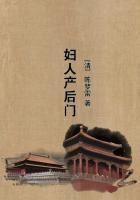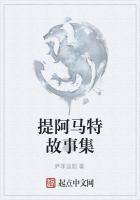It would require a much higher degree of skill to paint two such men as Mr. Canning and Sir Thomas Lawrence, so that nobody who had ever seen them could for a moment hesitate to assign each picture to its original. Here the mere caricaturist would be quite at fault. He would find in neither face anything on which he could lay hold for the purpose of making a distinction. Two ample bald foreheads, two regular profiles, two full faces of the same oval form, would baffle his art; and he would be reduced to the miserable shift of writing their names at the foot of his picture. Yet there was a great difference; and a person who had seen them once would no more have mistaken one of them for the other than he would have mistaken Mr. Pitt for Mr. Fox. But the difference lay in delicate lineaments and shades, reserved for pencils of a rare order.
This distinction runs through all the imitative arts. Foote's mimicry was exquisitely ludicrous, but it was all caricature. He could take off only some strange peculiarity, a stammer or a lisp, a Northumbrian burr or an Irish brogue, a stoop or a shuffle. "If a man," said Johnson, "hops on one leg, Foote can hop on one leg." Garrick, on the other hand, could seize those differences of manner and pronunciation, which, though highly characteristic, are yet too slight to be described. Foote, we have no doubt, could have made the Haymarket theatre shake with laughter by imitating a conversation between a Scotchman and a Somersetshireman. But Garrick could have imitated a conversation between two fashionable men, both models of the best breeding, Lord Chesterfield, for example, and Lord Albemarle, so that no person could doubt which was which, although no person could say that, in any point, either Lord Chesterfield or Lord Albemarle spoke or moved otherwise than in conformity with the usages of the best society.
The same distinction is found in the drama and in fictitious narrative. Highest among those who have exhibited human nature by means of dialogue, stands Shakspeare. His variety is like the variety of nature, endless diversity, scarcely any monstrosity.
The characters of which he has given us an impression, as vivid as that which we receive from the characters of our own associates, are to be reckoned by scores. Yet in all these scores hardly one character is to be found which deviates widely from the common standard, and which we should call very eccentric if we met it in real life. The silly notion that every man has one ruling passion, and that this clue, once known, unravels all the mysteries of his conduct, finds no countenance in the plays of Shakspeare. There man appears as he is, made up of a crowd of passions, which contend for the mastery over him, and govern him in turn. What is Hamlet's ruling passion? Or Othello's? Or Harry the Fifth's? Or Wolsey's? Or Lear's? Or Shylock's? Or Benedick's?
Or Macbeth's? Or that of Cassius? Or that of Falconbridge? But we might go on for ever. Take a single example, Shylock. Is he so eager for money as to be indifferent to revenge? Or so eager for revenge as to be indifferent to money? Or so bent on both together as to be indifferent to the honour of his nation and the law of Moses? All his propensities are mingled with each other, so that, in trying to apportion to each its proper part, we find the same difficulty which constantly meets us in real life. A superficial critic may say, that hatred is Shylock's ruling passion. But how many passions have amalgamated to form that hatred? It is partly the result of wounded pride: Antonio has called him dog. It is partly the result of covetousness: Antonio has hindered him of half a million; and, when Antonio is gone, there will be no limit to the gains of usury. It is partly the result of national and religious feeling: Antonio has spit on the Jewish gaberdine; and the oath of revenge has been sworn by the Jewish Sabbath. We might go through all the characters which we have mentioned, and through fifty more in the same way; for it is the constant manner of Shakspeare to represent the human mind as lying, not under the absolute dominion of one despotic propensity, but under a mixed government, in which a hundred powers balance each other. Admirable as he was in all parts of his art, we most admire him for this, that while he has left us a greater number of striking portraits than all other dramatists put together, he has scarcely left us a single caricature.
Shakspeare has had neither equal nor second. But among the writers who, in the point which we have noticed, have approached nearest to the manner of the great master, we have no hesitation in placing Jane Austen, a woman of whom England is justly proud.
She has given us a multitude of characters, all, in a certain sense, commonplace, all such as we meet every day. Yet they are all as perfectly discriminated from each other as if they were the most eccentric of human beings. There are, for example, four clergymen, none of whom we should be surprised to find in any parsonage in the kingdom, Mr. Edward Ferrers, Mr. Henry Tilney, Mr. Edmund Bertram, and Mr. Elton. They are all specimens of the upper part of the middle class. They have all been liberally educated. They all lie under the restraints of the same sacred profession. They are all young. They are all in love. Not one of them has any hobbyhorse, to use the phrase of Sterne. Not one has a ruling passion, such as we read of in Pope. Who would not have expected them to be insipid likenesses of each other? No such thing. Harpagun is not more unlike to Jourdain, Joseph Surface is not more unlike to Sir Lucius O'Trigger, than every one of Miss Austen's young divines to all his reverend brethren. And almost all this is done by touches so delicate, that they elude analysis, that they defy the powers of description, and that we know them to exist only by the general effect to which they have contributed.















